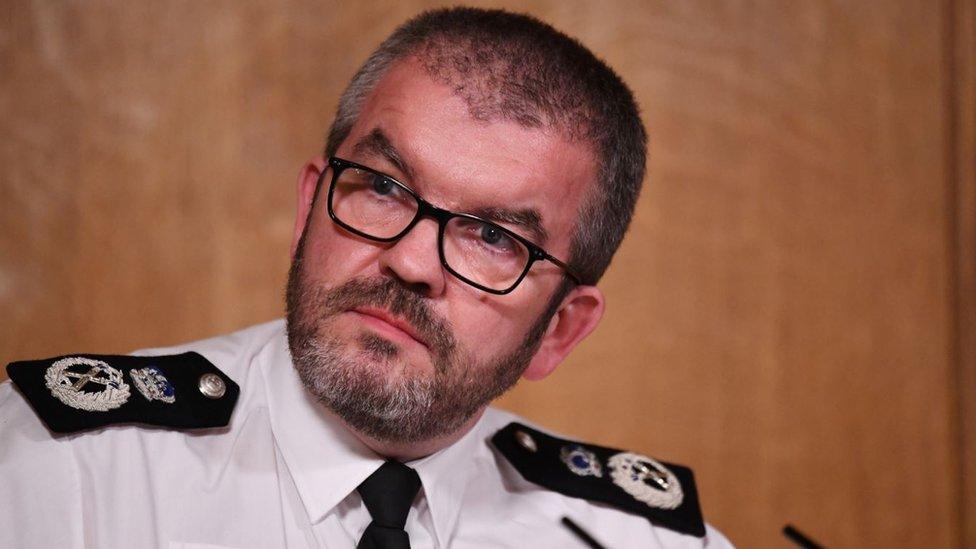Race crisis threatening police legitimacy, police chair warns
- Published

Trust in the police among black communities is so low that it is having a damaging effect on law enforcement, a senior police chief has warned.
Martin Hewitt, National Police Chiefs' Council (NPCC) chair, said confidence in policing was 20% lower in the black population compared to the average.
Forces have faced criticism over the disproportionate use of powers against black people.
Mr Hewitt said it was also important to increase the number of black recruits.
He told the Guardian, external that he wanted to change "generations of history" between police and black communities.
"The reason it is important is because all of that takes you to the legitimacy of us, as a service," he said.
Having trust and confidence in the police will not only encourage people to report crimes and work with forces, he believes, but will also lead to young black people wanting to become officers themselves.
"This is not about political correctness. This is not about 'wokeism' or whatever anyone else wants to call it," Mr Hewitt added.
"This is about legitimate policing. Legitimate policing has to be legitimate for all the communities, and that includes the black community."
It is Mr Hewitt's first interview on race since the Black Lives Matter protests which swept the globe last year following the death of George Floyd in police custody.
The trial of Derek Chauvin, the police officer accused of killing Mr Floyd, begins on Monday.
Events in the US sparked conversations across the Atlantic about police powers in the UK and the use of force against members of the black community.
A report published last month, external from Her Majesty's Inspectorate of Constabulary and Fire and Rescue Services found that black people were nearly nine times more likely to be stopped and searched than white people.
The inspectorate said that forces "still cannot explain why these powers are used disproportionately" and called on police leaders to address this "or risk losing the trust of the communities they serve".
Officers in the UK's largest police force - the Metropolitan Police - are four times more likely to use force against black people compared with the white population, figures published last year suggested.
Restraint techniques are also more likely to be used on black people, with one serving officer telling the BBC this was because police found black people "more threatening and aggressive".
A report from August found that two-thirds of black and minority ethnic people felt there was bias against them within police forces.
The NPCC said at the time that it would develop a plan of action "to address racial inequalities in policing".
Mr Hewitt said the new action plan had not yet been finalised.
Meanwhile, the Independent Office for Police Conduct, which handles complaints about officers' behaviour in England and Wales, is investigating whether forces racially discriminate against people from black, Asian and minority ethnic communities.
But similar police inquiries have been carried out in the past, with criticism that such reviews do not change things.

NOW THAT'S WHAT I CALL LOCKDOWN: The music that got you through
WALKING HOME ALONE: "I'm just too terrified"
